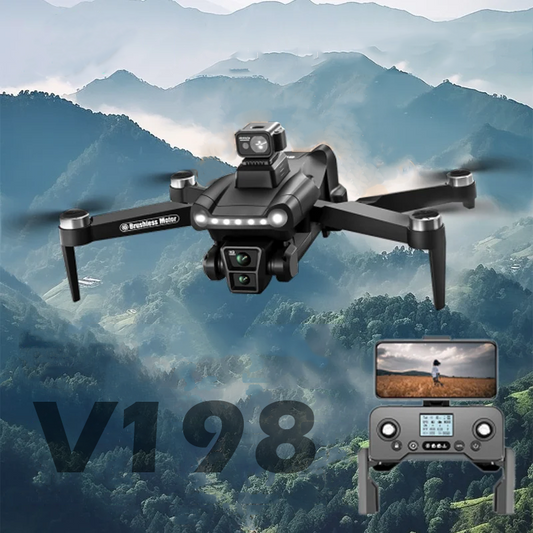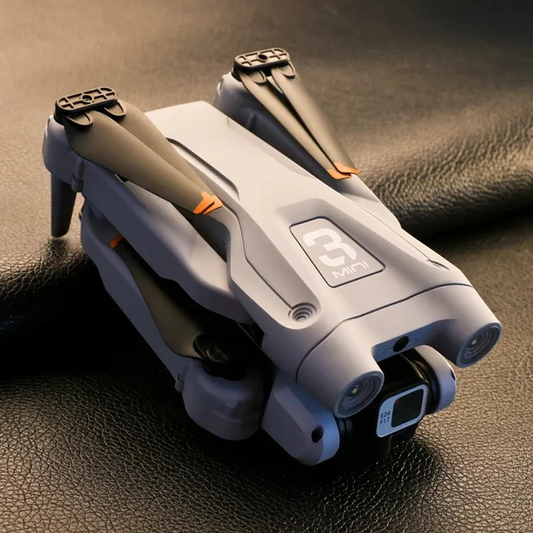How Drones are Aiding in Coastal and Marine Conservation Efforts

In recent years, technological advancements have revolutionized the way we approach conservation efforts, particularly in protecting our delicate coastal and marine ecosystems. Among these innovations, drones have emerged as a game-changer, offering unprecedented capabilities in monitoring and safeguarding these vital environments. From tracking marine wildlife to assessing habitat health, drones are rapidly becoming indispensable tools in the hands of conservationists worldwide.
Understanding the Importance of Coastal and Marine Conservation

Coastal and marine environments encompass a vast array of ecosystems, including coral reefs, mangroves, and seagrass beds, which are home to an incredible diversity of life. These ecosystems provide essential services such as coastal protection, carbon sequestration, and sustaining fisheries, making them critical for both environmental and economic reasons.
However, these valuable ecosystems face numerous threats, including habitat destruction, pollution, overfishing, and the impacts of climate change. Addressing these challenges requires comprehensive monitoring and management strategies to ensure their long-term sustainability.
The Rise of Drone Technology in Conservation
Enter drones, also known as unmanned aerial vehicles (UAVs), which have transformed the way we observe and protect our natural world. Equipped with high-resolution cameras, sensors, and advanced GPS technology, drones offer unparalleled access to remote and inaccessible areas, making them ideal for monitoring coastal and marine environments.
1.Tracking Marine Wildlife

One of the most significant applications of drones in conservation is tracking marine wildlife. From sea turtles to whales, these aerial devices provide researchers with a bird's-eye view of animal behavior and distribution patterns. By collecting data on population sizes, migration routes, and habitat usage, drones help scientists gain valuable insights into the ecology of marine species, aiding in their conservation efforts.
2.Assessing Habitat Health

In addition to monitoring wildlife, drones play a crucial role in assessing the health of coastal and marine habitats. Using specialized sensors, such as multispectral and thermal cameras, drones can detect changes in vegetation, water quality, and coral reef health with remarkable accuracy. This information allows conservationists to identify areas of concern and implement targeted interventions to mitigate environmental degradation.
3.Combating Illegal Activities

Drones are also valuable tools in combating illegal activities such as poaching, illegal fishing, and coastal development. With their ability to cover large areas quickly and discreetly, drones enable law enforcement agencies to monitor remote coastlines and marine protected areas more effectively. By detecting and deterring illicit activities, drones help safeguard vulnerable ecosystems and the species that depend on them for survival.
Case Studies: Drones in Action
1.Protecting Sea Turtles in Costa Rica

In Costa Rica, drones are being used to protect endangered sea turtles from poaching and habitat destruction. Conservation organizations employ drones to monitor nesting beaches, identify poachers, and track nesting activity in real-time. This proactive approach has led to a significant increase in sea turtle populations and has helped raise awareness about the importance of conservation among local communities.
2.Restoring Coral Reefs in Australia

The Great Barrier Reef, one of the world's most iconic marine ecosystems, is facing unprecedented threats from climate change and coral bleaching. To aid in its conservation, researchers are using drones to assess coral health and identify areas in need of restoration. By mapping reef habitats and monitoring changes over time, drones are helping scientists develop targeted conservation strategies to protect this natural wonder for future generations.
Overcoming Challenges and Looking Ahead

While drones offer immense potential in coastal and marine conservation, their widespread adoption is not without challenges. Issues such as regulatory constraints, limited battery life, and data management can hinder their effectiveness in the field. However, ongoing advancements in drone technology, coupled with collaborative efforts between researchers, conservation organizations, and policymakers, are helping to overcome these obstacles.
Looking ahead, the future of drones in conservation appears promising. As technology continues to evolve, drones will become more affordable, accessible, and sophisticated, opening up new possibilities for monitoring and protecting our planet's precious coastal and marine environments. By harnessing the power of drones, we can work towards a more sustainable future where humans and nature thrive in harmony.
In conclusion, drones are revolutionizing coastal and marine conservation efforts by providing researchers and conservationists with unprecedented capabilities in monitoring and protecting these vital ecosystems. From tracking marine wildlife to assessing habitat health and combating illegal activities, drones are invaluable tools in the fight to preserve our oceans for future generations. By embracing this innovative technology and working together towards common goals, we can ensure a brighter future for our planet's coastal and marine environments.
Explore a variety of drones at our online drone store.
Happy Flying!









